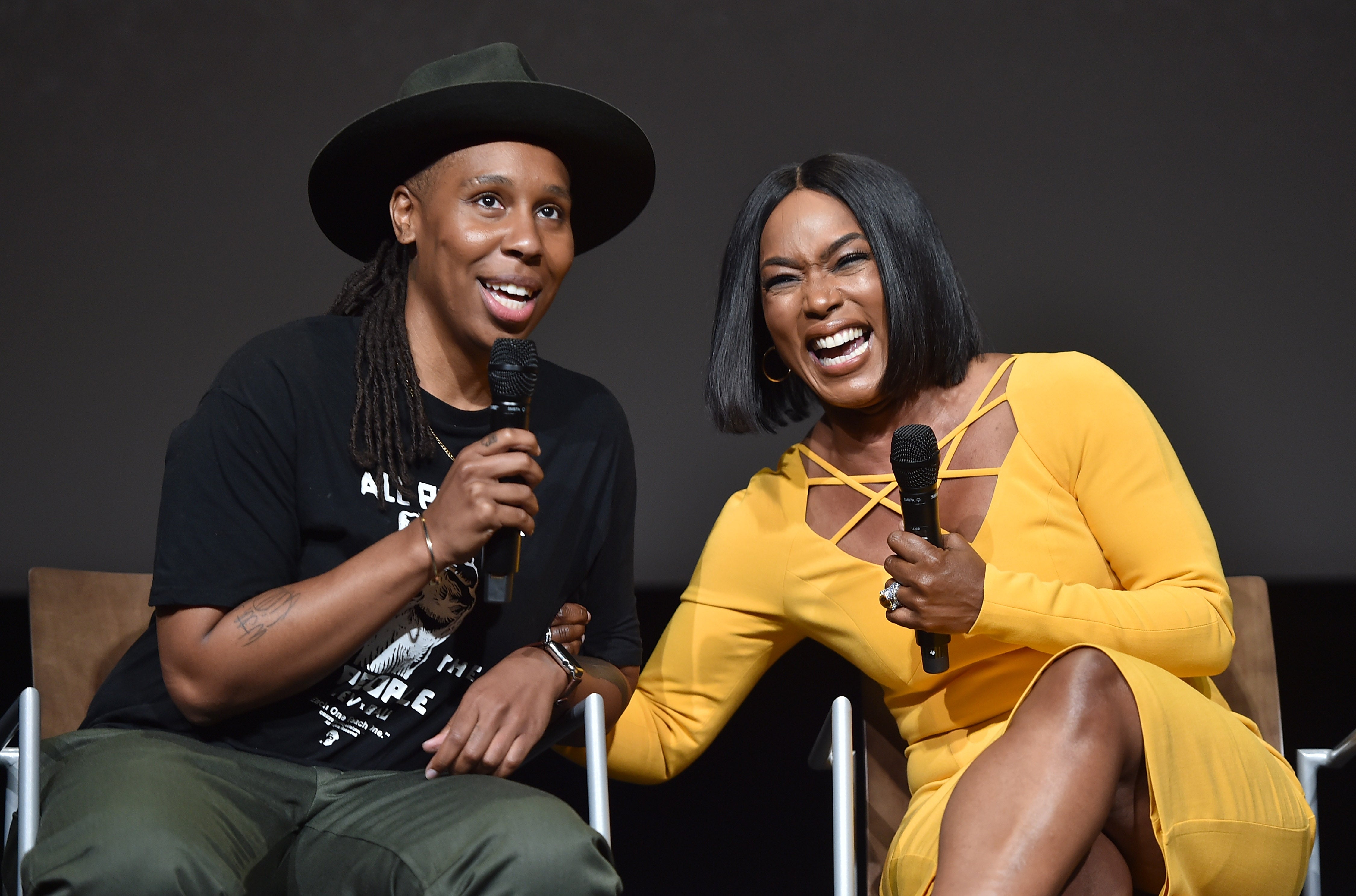
Unlike her character on Master of None, Lena Waithe grew up with a sister. Only two years older, the girls were distinctly different with her sister being into dresses and frills and Waithe into outdoor sports. From a young age conforming to roles based on gender, wasn’t a part of Waithe’s blueprint.
“I’ve never censored myself. Never,” the Emmy award-winner told ESSENCE. “I’ve always wanted to be real and honest and tell my truth. Now, sometimes I get censored, but I don’t censor myself.”
After working in the industry for a decade, on Sunday she won an Emmy for her “Thanksgiving” episode on Master of None that delves into the coming out process of her character. Beautifully written and performed, the Melina Matsoukas-directed episode showed a deep understanding for humanity and acceptance in a world that often doesn’t accept more than one narrative of Black women.
Speaking of being a Black woman in Hollywood, Waithe had a ton of practical advice for those interested in being the next Lena, Issa, Mara or Melina.
Know what you’re doing.
“Looking at those who come out of Chicago, like myself, Common, Kanye, Chance, Jennifer Hudson —we have a hustler’s spirit. That’s a huge part of it,” she said. “I think a big thing for me, whenever people talk to me people hit me up a lot on my DMs or tweet me and stuff like that, ‘What kind of advice you have?’ I always tell them to study. Study the craft. Hustling is apart of it, but it’s… I always say this, hustle gets you in the room, talent keeps you there.”
Invest the time.
“All these people have been following what I got for the past year and a half. But it takes years,” Waithe noted about her journey that included HelloCupid and Dear White People. “I’m a big believer in honing your craft. A lot of people say, ‘Oh, I wanna be a writer.’ Well, have you taken a writing class? ‘Uh, nah.’ Or, ‘Hey, yo. I wanna be an actor, give me a shot.’ Have you ever taken an acting class? Do you have an agent? Do you have a manager? ‘Nah. I don’t have none of that.’ Especially if you’re in Chicago, Second City is right in your backyard. Take a class. If you’ve got a cell phone, you’ve got an iPhone in your hand, go make a movie.”
Be cool with starting from the bottom.
“I’m a believer in, go ask somebody to shadow them on the set,” Waithe said, who was an assistant for Gina Prince-Bythewood and Mara Brock Akil. “Go ask and see if you can be a P.A. on a show. Now mind you —every city doesn’t have that— but I know Chicago, New York, L.A., a lot of people filming in Atlanta, if you’re in one of those cities, there are things that are in production. You can go say, ‘Hey, can I be an intern? Hey, can I go grab so-and-so lunch? Hey, can I get you coffee?’ For me it’s about humility and learning everything you can about the craft that you wanna be apart of because that’s going to set you apart. That separates the boys from the men —people that know what they’re doing and know the language and understand it. Also live it and breath it.”
Watch a lot of TV and films— and study those credits.
“Dude said, ‘I want to be a television writer.’ Okay, what are you watching right now? ‘Uh, I really don’t have time to watch T.V.’ How are you gonna become a T.V. writer and you don’t know what’s on T.V.? You come to L.A. you have to be able to talk the language. That’s my advice. Learning. Live it. Breathe it. Eat it. Make it your life. Study it. Because that’s what’s going to impress me. That’s what’s going to make me bring you on as an intern, as a P.A., as an assistant. There has to be a passion for it, not just a want.”
Consider the options outside of the big four.
“Everybody looks at writers, producers, directors, actors. Those are the flashiest ones,” Waithe notes. “It takes a village to make a TV show. There’s so many jobs, so many things. Get on a set so you can actually see what everybody does. You may want to be a production designer or a makeup artist or wardrobe designer or a line producer or the A.D. So that’s my big thing, learn it. Learn about the thing you ‘want’ to do before you decide if you [really] want to do it. Because in learning it, you may decide you don’t want to do that. You may want to do something else.”
